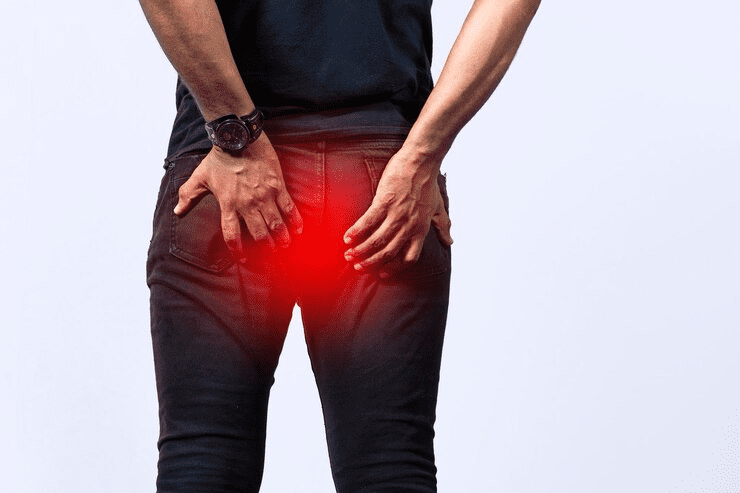With changing lifestyles and sedentary habits, we’ve depended on heavy unhealthy food on an almost daily basis forgetting the “Satvik” purpose that a meal serves. Thus welcoming a host of diseases especially digestive disorders. One such condition is piles/ hemorrhoids/ fissures. Several people count on alternative medicine or complementary forms of therapy such as Ayurvedic treatment for hemorrhoids or condition of piles. When allopathy fails to resolve the woes, a holistic treatment addresses the issues of mind, body, and soul.
Hemorrhoids, commonly known as piles, is the condition when the veins in the anus and rectum get swollen. In Ayurveda, the condition is known as Arsas.
Some of the common symptoms of internal and/or external hemorrhoids are:
- Painful and irregular bowel movements
- Bleeding from anus
- Pain and/or irritation around the anus
- Intense itching around the anus
- Swelling and/or lump around the anus
- Leakage of stool in extreme cases
Piles are generally found in people ranging from 45 to 65 years of age, however, due to lifestyle changes and digestion troubles, piles can take place nowadays even in the youth.
Some of the reasons for the occurrence of piles in an individual are:
- Constipation
- Genetical/ Family history
- Pregnancy
- Sedentary lifestyle
- Obesity
- Low digestive fire
- Continuous sitting and/or travel
Many people also suffer from one or more related conditions: fever, diarrhea, constipation, enhanced thirst, poor digestion, with hemorrhoids varying from red and soft, black and hard, light, white and slippery in texture.
If any of the symptoms of Piles is found, generally over-the-counter tubes and creams are recommended, however, an Ayurvedic doctor strives to bring the body back into balance by working on the three doshas. A judicial mix of herbal remedies, lifestyle modification, and dietary practices are recommended to cure piles.
The treatment starts with detoxifying the body, followed by other procedures. The overall purpose is to treat digestive disorders by balancing the “heat or agni” of the body. Some of the options in Ayurvedic Treatment for Piles could be:
Bhaishajya Chikitsa: Herein, medication is recommended for minor hemorrhoids.
Kshara: Herbs are applied as a paste to manage piles. The paste will help heal the hemorrhoids that were open and bleeding.
Sastra Chikitsa: A medicated thread is used to treat hemorrhoids by cutting off blood supply to the veins, thus allowing the hemorrhoids to shrink.
Agnikarma: When external hemorrhoids are to be treated, infrared heat is used to burn off hemorrhoids. It might create some pain, however, it will help in the long run. It is observed that Ayurvedic Treatment for Piles is effective, the Kshara Sutra procedure takes lesser time than haemorrhoidectomy and the patient can expect faster recovery with lesser side effects.
However, when a surgery is performed for treatment of piles, a few side effects could be observed such as:
- Tissue damage
- Pain
- Bleeding
- Risk of infection
- Leakage of stool
Ayurveda believes in the holistic treatment of the disease, thus eliminating it from the root. It is made sure by the Ayurvedic doctor that the recurrence of piles does not take place, thus medications and changes in diet are prescribed after proper diagnosis of the current condition. Many people go for home-based remedies as well along with getting treated by an Ayurvedic doctor, such as:
- Buttermilk: Buttermilk with rock salt, ginger, and pepper helps relieve hemorrhoid pains. It can also be mixed with bitter gourd juice for better results.
- Radish Juice: Eating raw radish or having radish juice help relieve constipation.
- Whole Grains: As whole grains are rich in fiber, it helps soothe stomach issues. Barley, lentils, beans, oats, and brown rice is effective in treating bleeding due to piles.
- Ice: Ice is applied to the affected area to reduce inflammation by constricting the blood vessels, thus soothing the pain.
It is best to consult an Ayurvedic doctor for treatment for the condition of piles before it gets any severe! Meanwhile, some of the preventive measures that a patient can take are:
- Shedding excessive weight
- Stay well hydrated
- Practice anal hygiene
- Avoid postponing the urge to defecate
- Avoid sitting for long intervals
- Have a diet rich in green veggies and fruits
- Have digestion inducing fruits and juices
- Avoid spicy food and excessive salt




